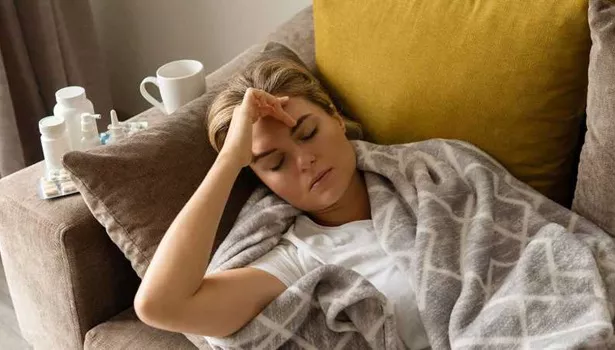Postmenopausal migraines represent a significant health issue for many women transitioning through menopause. The hormonal fluctuations that occur during this period can exacerbate migraine symptoms, leading to increased frequency and severity of attacks. Understanding the intricate relationship between menopause and migraines is crucial for effective management. This article aims to provide a comprehensive overview of treatment options for postmenopausal migraines, including pharmacological interventions, lifestyle modifications, and complementary therapies. By exploring these avenues, healthcare providers can better equip women to manage their migraine symptoms effectively during this transitional phase.
The Relationship Between Menopause and Migraines
Hormonal Influences on Migraine Patterns
Menopause marks a significant decline in estrogen levels, which has been closely linked to migraine pathophysiology. The relationship between estrogen and migraines is complex and multifaceted:
Estrogen Withdrawal: A sudden drop in estrogen can trigger migraines, similar to menstrual migraines experienced during the premenopausal phase.
Hormonal Fluctuations: During perimenopause, fluctuating hormone levels can lead to unpredictable migraine patterns. Women may experience an increase in attack frequency or severity as their bodies adjust to these changes.
Types of Migraines Associated with Menopause
Postmenopausal women may experience several types of migraines, including:
Migraine Without Aura: The most common form, characterized by moderate to severe headache pain, often accompanied by nausea and sensitivity to light.
Migraine With Aura: Involves visual disturbances or other sensory changes before the headache phase. This type may be more concerning due to potential cardiovascular risks associated with estrogen therapy.
Treatment Strategies for Postmenopausal Migraines
Pharmacological Treatments
Preventive Medications
Preventive treatments aim to reduce the frequency and severity of migraine attacks. Options include:
Antidepressants:
Venlafaxine: Effective in reducing migraine frequency while also addressing mood symptoms.
Escitalopram: Another SSRI that has shown promise in managing both migraines and depressive symptoms.
Antiseizure Medications:
Topiramate: Commonly used for migraine prevention; it may also help with mood stabilization.
Gabapentin: Useful for neuropathic pain and has shown some efficacy in reducing migraine frequency.
Beta-Blockers:Medications such as propranolol can be effective in preventing migraines and managing cardiovascular risk factors.
See Also:How Many Headaches Are Caused By Dehydration?
Acute Treatments
Acute treatments are employed during a migraine attack to alleviate symptoms:
Triptans:These are often the first line of treatment for acute migraine attacks but should be used cautiously in women with cardiovascular risk factors.
Nonsteroidal Anti-Inflammatory Drugs (NSAIDs):Commonly used for immediate relief during migraine attacks; they are generally well-tolerated.
Calcitonin Gene-Related Peptide (CGRP) Inhibitors:Newer medications targeting CGRP pathways have shown efficacy in treating migraines with fewer side effects compared to traditional treatments.
Hormone Replacement Therapy (HRT)
The role of HRT in managing postmenopausal migraines is controversial:
Estrogen Therapy: While some studies suggest that low-dose transdermal estrogen may help alleviate migraine symptoms, others indicate that HRT can worsen headaches, particularly in women with a history of migraines with aura.
Combination Therapy: For women with an intact uterus, combining estrogen with progestin is recommended to mitigate risks associated with endometrial hyperplasia.
Non-Pharmacological Approaches
Lifestyle Modifications
Dietary Changes:Keeping a food diary can help identify triggers such as caffeine, alcohol, or aged cheeses.
Regular Sleep Patterns:Establishing consistent sleep routines can reduce the frequency of migraine attacks.
Stress Management Techniques:Practices such as yoga, meditation, and deep breathing exercises can alleviate stress-induced migraines.
Complementary Therapies
Acupuncture:Some studies have shown that acupuncture can be beneficial in reducing the frequency and intensity of migraines.
Supplements:Magnesium supplementation has been linked to a decrease in migraine days; starting at low doses may minimize gastrointestinal side effects.
Herbal Remedies:Black cohosh and vitamin E have shown promise in limited studies for reducing menopausal symptoms and associated headaches.
Monitoring and Adjusting Treatment Plans
Importance of a Headache Diary
Keeping a detailed headache diary is crucial for tracking migraine patterns, triggers, and treatment efficacy. This information aids healthcare providers in tailoring treatment plans to individual needs.
Collaborative Care Approach
Engaging with healthcare professionals specializing in headache management can enhance treatment outcomes. A multidisciplinary approach that includes neurologists, gynecologists, and mental health professionals is often beneficial for comprehensive care.
Conclusion
Postmenopausal migraines present unique challenges that require a nuanced understanding of hormonal changes and individual patient needs. While some women may find relief after menopause, others may experience persistent or worsening symptoms. A combination of pharmacological interventions, lifestyle modifications, and complementary therapies can provide effective management strategies tailored to each woman’s circumstances.
FAQs About Postmenopausal Migraines
1.Can I expect my migraines to improve after menopause?
While some women do experience improvement post-menopause, others may find their symptoms worsen due to hormonal changes.
2.Is hormone replacement therapy effective for treating postmenopausal migraines?
HRT can be beneficial for some women but may exacerbate migraines in others; careful monitoring is essential.
3.What lifestyle changes can help reduce my migraine frequency?
Maintaining regular sleep patterns, avoiding known dietary triggers, and practicing stress management techniques can significantly help.
4.Should I consult a specialist for my migraines?
Yes, consulting a headache specialist or a healthcare provider experienced in managing menopausal symptoms is advisable for personalized care.
This article provides an overview of how to treat postmenopausal migraines effectively through various strategies tailored to individual needs and circumstances while emphasizing the importance of collaborative care and ongoing monitoring.
Related articles:
The Link Between Sadness and Physical Pain: Understanding and Coping
Are Constant Headaches a Sign of Depression?
The Link Between Sadness and Headaches: Physiology & Relief


